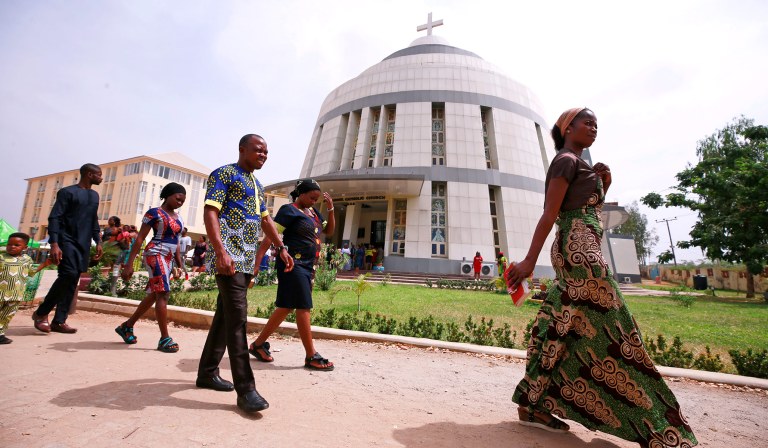
The U.S. Should Not Ignore the Plight of Nigeria’s Christians
Nigeria’s long plague of jihadist violence and mayhem has reached new heights. Earlier this month, armed bands of ethnic Fulani herdsmen assaulted the mainly Christian areas along the border of the Plateau and Kaduna states of central Nigeria.
Units of several hundred Muslim Fulani militiamen, along with their herds, entered villages along with war cries of “Allahu akbar” and fired AK assault rifles randomly through the streets and into homes, reportedly killing scores of civilians and burning hundreds of houses and acres of surrounding cropland.
One such attack, according to local journalists, occurred last week around Miango, twelve miles west of Jos, Plateau’s capital. Lasting five hours, it left dozens of Christians dead and more wounded, including Pastor Amadu Musa, a Fulani convert, as well as thousands displaced.
Neighborhood-watch volunteers, misleadingly called “vigilantes,” attempted a defense with slingshots and rifles but were no match for the heavily armed Fulani jihadists. The Jos-based Third Army Division showed up only afterward, to cynically report the invasion as a communal clash.
Local human-rights lawyer Solomon Dalyop made an often-heard allegation that local Christians make about the military: “The military has confirmed our fears that they have a hand in this particularly as they have gone ahead to arrest the natives who were protecting their houses, while more killings and destruction continued for three days.”
These areas and many others have come under repeated attack by armed, nomadic members of the Fulani Muslim ethnoreligious group, but the strength of force is new. The attacks have proliferated in an environment of impunity under President Muhammadu Buhari, the son of a Fulani Muslim chieftain.
His persistent failure to protect these civilians and prosecute their attackers reveals a government that is not simply lacking capacity. Rather, at six years into the president’s tenure, this violence appears to have the state’s tacit approval and serves a Buhari political priority.

